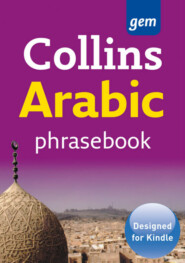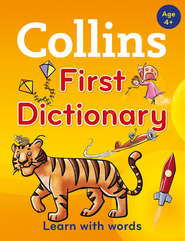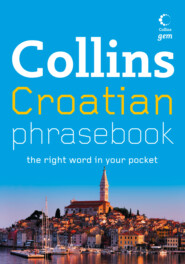По всем вопросам обращайтесь на: info@litportal.ru
(©) 2003-2024.
✖
Scots Dictionary: The perfect wee guide to the Scots language
Настройки чтения
Размер шрифта
Высота строк
Поля
baldie A variant spelling of bauldie.
balloon A balloon is a Glasgow term for someone who is full of hot air and whose opinions, although loudly and frequently expressed, are regarded as worthless: A pompous balloon who drivelled on about “deliverables” and “blue-sky thinking”.
ballop (rhymes with gallop) In some areas, such as Galloway, the fly on a pair of trousers is known as the ballop: I suppose we’d better tell him his ballop’s open. Also called (elsewhere) spaiver.
balmoral (bahl-maw-rul) A balmoral is a type of round brimless cap, the top of which projects beyond the side and has a bobble on it. It often has a checked band round the side, and is usually worn at a slant. [It is named after Balmoral Castle, a private residence of the British royal family in Aberdeenshire]
bampot (bam-pot) A bampot is a colloquial term for a foolish, stupid, or crazy person, as are bam and bamstick. [These terms all probably come from barm, the froth on the top of a fermenting liquid, which is also the source of the English word barmy meaning crazy]
bandit In the Glasgow area, any thing, person, or event that causes pain or outrage may be referred to as a bandit, especially in exclamations such as ya bandit!
Banff Banff or Banffshire is a historic county of Northeast Scotland, consisting of part of the southern coast of the Moray Firth and the area inland from it. It is now part of the Aberdeenshire council area.
banjo (ban-joe) To banjo someone is a Glaswegian term meaning to hit them a single hard blow.
bannock (ban-nok) A bannock is a round flat unsweetened cake which is made from oats or barley and baked on a griddle. Bannock is also short for Selkirk bannock, a type of round fruit loaf originating in the Border town of Selkirk.
Bannockburn (ban-nok-burn) References to Bannockburn are generally to the battle which took place near Stirling in 1314, at which the Scottish army led by Robert the Bruce defeated an invading English army and secured Scotland’s position as an independent nation until 1707. The present-day village of Bannockburn is situated a few miles further down the Bannock Burn.
barkit (bark-it) Barkit is a word used in the Northeast which means very dirty, used particularly of something which is encrusted with dried-on dirt.
barley
barley Barley is a cry used, chiefly in the East of Scotland, to call for a period of truce or a temporary halt to a game among children at play, used, for instance, when someone is hurt or needs to tie their shoelaces. In Western Scotland, the word used is usually keys. [The word is probably derived from parley, a ceasefire for discussion]
barley bree See bree.
baronial (ba-roe-ni-al) The baronial style of architecture is one popular in the 19th century in which buildings are ornamented with pseudo-medieval features such as turrets and mock battlements: The magnificent turreted Scottish baronial style of the exterior of the hotel.
barra (ba-ra) A barra is a wheelbarrow. Something which is right into one’s barra is ideal and exactly in line with one’s interests or desires. To fancy one’s barra is to have an unduly high opinion of oneself. In the Glasgow area, a wee barra is an informal way of referring to any small person that the speaker likes, or at least does not dislike. The Glasgow flea market is known as The Barras.
barrie or barry (bar-ri) Something which is barrie is very good or very attractive: Your hair looks really barrie like that; We’d a really barrie time. [The word, which is of Romany origin, is mainly used in Edinburgh and the Southeast]
bashit Bashit vegetables are ones which have been mashed: bashit neeps.
bastartin (bass-ter-tin) or bastardin (bass-ter-din) Bastartin is a swear word used, like damned or bloody, to indicate dislike or annoyance: Watch whit yir daein wi that bastartin hammer!
bate (bait) Bate is a Scots form of beat or beaten: We got bate wan nil.
bauchle (bawCH-l) or bachle (baCH-l) A bauchle was originally a shabby or worn-out shoe. Nowadays the word bauchle is usually used to describe an ungainly or shabby-looking person, especially a small one: a wee bauchle.
bauldie or baldie (bawl-di) Someone who is bauldie or bauldie-heidit is bald: a wee bauldie guy. A bauldie is a bald person. A bauldie is also a very short haircut: You wouldn’t notice I’d had my hair done even if I got a right bauldie, would you?
bawbag (baw-bag) The bawbag is a colloquial term for the scrotum. In the Glasgow area, bawbag is also used as an insult to a person.
bawbee (baw-bee) A bawbee was originally a silver coin worth six Scots pennies. Later, bawbee came to mean a halfpenny. Although the halfpenny no longer exists, the word bawbee is still used to mean any small amount of money, especially in phrases implying miserliness or shortage of money: the current economic climate – otherwise known as a serious lack of bawbees. [The coin was probably named after Alexander Orrok of Sillebawby, who became master of the Scottish mint in 1538]
bawface A bawface is a round, chubby face, or a person with such a face.
bawheid (baw-heed) Bawheid basically means the same as bawface. However, it can also be used as a cheeky form of address for a person: Hey, bawheid!
beadle A beadle, also known as a kirk officer or church officer, is a paid official of the Church of Scotland, whose job includes assisting a minister with administrative work and placing the Bible in the pulpit at the start of a service.
beamer A beamer is a red face caused by embarrassment or guilt, or something which is so embarrassing or bad that it causes such a blush. The word is mainly used in the Glasgow area.
bear A bear is a usually derogatory term for a wild and uncouth young man, particularly one who drinks a lot: The bar closed long before the bears’ drooth was assuaged.
beast Among farmers, a beast is a calf, cow, bull, or bullock, irrespective of its age or sex. The plural can be either beasts or beas.
beastie
beastie A beastie is any small animal, nowadays particularly an insect, spider, or similar creepy-crawly.
beauty Ya beauty! is an exclamation of delighted approval or agreement: A holiday on Monday. Ya beauty!
beds or beddies In some areas of Scotland, the game of hopscotch is known as beds. The pattern of squares chalked on the ground on which the game is played is known as a bed. Also called pauldies and peever.
beel To beel is a Northeastern word which means to fester or turn septic.
beelin To be beelin is to be furiously angry. Beelin is less commonly used to mean very drunk. A beelin is a Northeastern name for a boil on the body. [All these senses are derived from beel (see above)]
beezer Something which is a beezer is an extreme example of its kind, usually one which is bigger or better than normal. In particular, a cold but dry and sunny winter day is often referred to as a beezer.
behouchie (ba-hooCH-ee) or bahookie (ba-hook-ee) The behouchie is an informal, usually jocular, name for the backside: Sit on your behouchie, you! [It is probably a combination of behind and hough, the Scots word for a thigh]
bell The Bells is the name traditionally given to the moment at midnight on December 31st when church bells are rung to mark the beginning of the New Year: We always used to go to the Cross for the Bells, but it’s got a bit rowdy these days. When a group of people are drinking in a bar, the person whose turn it is to go and buy the next round of drinks is often said to be on the bell.
belong to To belong to a town or area is to live there: I belong to Glasgow. In Scotland, people sometimes say that the owner of an object belongs to that object, rather than the object belonging to the person: Who belongs to this coat?
belt The belt, also known as the tawse, was a leather strap with which schoolchildren were struck on the hand for punishment. Its use is now illegal: I got six of the belt for fighting. To belt a child was to punish them by hitting them on the hand with such a strap.
Beltane (bell-tane) Beltane is an old Celtic fire festival which originally took place on the first or third of May. It was also a former term day, again on the first or third of May. In Peebles, Beltane is also the name given to the festivities accompanying the Riding of the Marches, which are held in late June. [The word comes from the Gaelic belltainn]
beltie (bell-ti) A beltie is an informal name for the belted Galloway, a variety of Galloway cattle which is black at the front and rear but has a white band round its middle. They are most common in Galloway in the extreme Southwest of Scotland, where they were first bred.
ben 1 A ben is a mountain. Ben is often used as part of the name of a mountain, such as Ben Nevis or Ben Lomond. [In this sense the word comes from Gaelic, where it is spelt beinn] 2 Ben also means in, within, or into the inner or main part of a house or other building: Come ben the hoose; She was ben the kitchen making tea. A ben is also the inner or main room of a house, especially that of the old-fashioned two-room cottage known as the but-and-ben.
Berwickshire (berr-ick-sher or berr-ick-shire) Berwickshire is a historic county in the extreme southeast of Scotland, on the North Sea coast and the border with England. It is now part of the Scottish Borders council area.
besom (biz-zum) Besom is a derogatory term for a woman or girl: Cheeky wee besom!
bevvy As in some other parts of Britain, in Scotland any alchoholic drink is sometimes referred to as bevvy. A bevvy is a drinking session, and a particularly drunken one is sometimes called a heavy bevvy: It’s just another excuse for a good bevvy. To bevvy is to drink alcohol, and hence, someone who is drunk is sometimes said to be bevvied. [The word is an informal shortening of beverage]
Bhoys
Bhoys (boys) Celtic football team and its supporters are sometimes referred to as the Bhoys. [This is a mock Gaelic spelling of Boys which reflects the team’s origin among Glasgow’s Irish community]
bide To bide in a place is to live there: They were biding in a flat near the harbour. To bide in a state or condition is to remain in it: We’re no awa to bide awa. To be able to bide a person or thing is to be able to endure or tolerate it. This sense is usually used in the negative, indicating that something is intolerable: I cannae bide that man. To bide by a decision is to comply with it, even if you disagree with it: Party officials announced that they would bide by the outcome of the ballot. The past tense can be either bided, bid, or bode, and the past participle bided or bade.











